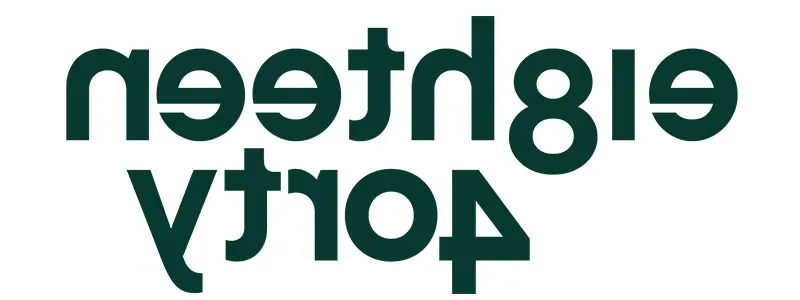Expanding your team across borders can be challenging. How do you choose between an Employer of Record (EOR) and hiring contractors? Each option has unique implications for compliance, legal responsibilities, and employee management.
In short:
EOR: Manages local labor laws, payroll taxes, and benefits. Ensures compliance with wage and overtime regulations, providing clear employment status and responsibilities.
Independent Contractor: Operates autonomously, handling their own taxes and legal obligations. Offers flexibility but requires self-management of compliance and benefits.
This article will look at the distinctions between EOR and independent contractors, helping you decide which option aligns best with your company’s needs and goals.
Whether you’re hiring across different countries or aiming to streamline your global hiring process, making an informed decision is crucial. The following image depicts key discrepancies between an EOR and independent contractors to help guide your choice:
What is an Employer of Record (EOR)?
An Employer of Record (EOR) is a third-party organization that takes on the legal responsibilities of hiring employees on behalf of another company, including managing employment-related obligations. In global hiring, an EOR is different than a PEO and allows businesses to hire talent in different countries without setting up a local legal entity.
When a company partners with an EOR, the EOR becomes the legal employer for the hired employees. This means the EOR handles crucial tasks such as payroll processing, tax withholding, and compliance with local labor laws. Additionally, the EOR manages employee benefits, ensuring that the company adheres to local regulations without the administrative burden.
Partnering with an EOR allows companies to focus on their core business needs while the EOR manages compliance with local employment laws, reducing legal risks and simplifying the complexities of global hiring.
What is an Independent Contractor?
An independent contractor is a self-employed individual who provides services to businesses on a contract basis. Unlike full-time employees, they operate independently, offering flexibility for specific tasks or projects in the gig economy.
Legally, independent contractors differ from employees as they aren’t entitled to benefits like health insurance or severance pay, and they aren’t subject to the same labor laws. Businesses must ensure compliance with local regulations to avoid contractor misclassification.
Independent contractors are responsible for managing their own taxes, equipment, and benefits, giving them autonomy but also more responsibility in handling their business affairs.
Why Hire an EOR?
Considering an Employer of Record (EOR) can simplify global hiring. Here’s why this approach may benefit your business:
Ensuring Compliance
An EOR manages compliance with local labor laws and regulations, minimizing legal risks. They handle employment standards and tax regulations, easing the burden of international hiring.
Facilitating Global Expansion
EOR services support global expansion by taking on the legal responsibilities in foreign countries. This includes setting up local entities and handling necessary administrative tasks.
Managing Employment Responsibilities
EORs oversee employee benefits, payroll taxes, and intellectual property rights. This ensures that all legal requirements are met while providing comprehensive benefits and minimizing administrative overhead.
An EOR offers valuable support for global hiring, ensuring legal compliance and managing key employment responsibilities. It’s an efficient solution for businesses aiming to expand internationally or streamline their hiring processes.
Why Hire Independent Contractors?
Opting for independent contractors can offer significant advantages. Here’s why hiring contractors might be the right choice for your business:
Cost-Effectiveness and Flexibility
Independent contractors provide a cost-effective solution for specific tasks and projects. Their flexibility allows businesses to scale resources up or down based on project needs, avoiding long-term commitments.
Ideal for Short-Term Projects
Contractors are well-suited for short-term assignments, enabling businesses to address immediate needs without hiring full-time employees. This approach also reduces the administrative burden associated with permanent staff.
Reduced Legal Responsibilities
Hiring independent contractors typically involves fewer legal responsibilities compared to full-time employees. Contractors handle their own taxes, benefits, and equipment, easing the administrative load on your business.
Independent contractors offer flexibility, cost savings, and reduced administrative responsibilities. They are a practical choice for businesses needing temporary expertise or wishing to streamline their hiring processes.
Pros and Cons of EOR vs. Contractor
When deciding between an Employer of Record (EOR) and independent contractors, it’s crucial to weigh the advantages and disadvantages of each option. Below, we break down the key pros and cons to help you make an informed decision based on your business needs.
Pros and Cons of Hiring an EOR
| Pros of Hiring an EOR | Cons of Hiring an EOR |
| Legal and Regulatory Compliance: Ensures adherence to local labor laws and regulations. | Cost: Services can be more expensive due to comprehensive support provided. |
| Global Hiring Flexibility: Facilitates hiring in different countries without setting up a local entity. | Control: Less direct control over employee management. |
| Employee Benefits: Manages benefits administration, including health insurance and social security contributions. |
Pros and Cons of Hiring Contractors
| Pros of Hiring Contractors | Cons of Hiring Contractors |
| Cost-Effective: More affordable for short-term or specific tasks. | Compliance Risks: Risk of legal issues from misclassification. |
| Flexibility: Ideal for gig economy roles or specific projects. | Limited Control: Less control over work processes and company culture. |
| Fewer Legal Responsibilities: Reduced legal obligations and tax responsibilities. |
When is an EOR Needed?
Expanding into new markets or countries can be complex. An Employer of Record (EOR) simplifies this process by handling employment and compliance issues.
1. Global Expansion
When a company expands into new countries, hiring employees directly can be complex due to varying local regulations. An EOR simplifies this by handling all aspects of employment, allowing businesses to quickly enter new markets without navigating complex legal requirements.
2. Entering Foreign Markets
For businesses looking to tap into foreign markets, an EOR provides a streamlined solution for local hiring. It manages payroll, benefits, and compliance, eliminating the need to set up a local entity or deal with intricate labor laws.
3. Compliance with Local Labor Laws
EORs are essential for ensuring compliance with diverse labor laws across different regions. They handle all legal aspects, from contracts to employee rights, reducing the risk of legal issues and penalties.
4. Managing Legal Risks
By outsourcing employment functions to an EOR, companies mitigate risks associated with misinterpreting or failing to comply with local employment regulations. This protection is crucial for avoiding costly legal disputes and ensuring smooth operations in unfamiliar markets.
KEY TAKEAWAY: An EOR streamlines global expansion and local compliance, allowing businesses to focus on growth while managing employment risks efficiently.
When is an Independent Contractor Needed?
Independent contractors are ideal for temporary needs and specialized tasks, offering flexibility and cost savings.
1. Short-Term Projects
Independent contractors are ideal for short-term projects that require specialized skills or expertise without long-term commitment. They provide immediate support and deliver results without the need for permanent hiring.
2. Specific Tasks
When specific tasks or niche skills are needed, contractors offer targeted solutions. They bring expertise to handle particular tasks efficiently, allowing companies to address specialized needs without permanent staff.
3. Flexibility
Contractors provide flexibility, allowing businesses to scale their workforce up or down as needed. This adaptability is crucial for managing fluctuating workloads and project demands without the constraints of full-time employment.
4. Cost-Effectiveness
Hiring independent contractors can be more cost-effective than full-time employees. Contractors typically handle their own taxes and benefits, reducing overall employment costs while delivering high-quality work.
For short-term projects and specific skills, contractors provide efficient, flexible, and cost-effective solutions.
Who are the Best EOR and Contractor Services Providers?
Finding the right EOR and contractor services provider is crucial for efficient global operations. Here are three top providers known for their expertise in managing talent and ensuring compliance across borders:
1840 & Company
1840 & Company is a local to global staffing and outsourcing provider provider that helps companies hire in 150 different countries. Their expertise in talent acquisition and compliance enables businesses to efficiently hire and manage top talent worldwide. With robust customer support and technical assistance, they are a top choice for reliable EOR and contractor services.
Deel
Deel is a renowned provider specializing in global hiring and compliance. Their platform streamlines the onboarding and management of international contractors and employees, ensuring adherence to local labor laws. Deel’s focus on flexibility and user-friendly solutions makes it an excellent choice for businesses looking to expand globally.
Papaya Global
Papaya Global excels in global payroll and EOR services, offering a comprehensive solution for managing international employees and contractors. Their platform integrates payroll and compliance management, reducing the complexity of operating in multiple countries and making them a preferred choice for companies with diverse global needs.
Choosing the right EOR and contractor services provider can significantly impact global operations. 1840 & Company, Deel, and Papaya Global are leading choices, each offering unique strengths in managing global talent and ensuring compliance.
What to Look for in an EOR or Contractor Service Provider
Selecting the right EOR or contractor service provider is crucial for seamless global operations. To ensure you choose the best partner, consider these key factors:
- Proven Track Record: Choose a provider with a history of successful global hiring and compliance.
- Compliance Expertise: Ensure they have deep knowledge of local employment laws and regulations.
- Tailored Solutions: Look for customized solutions that meet your specific business needs.
- Intellectual Property Protection: Assess their ability to protect your company’s intellectual property rights.
- Cost Efficiency: Consider the cost-effectiveness, including potential legal fees and setup costs.
Focusing on proven track records, compliance expertise, tailored solutions, intellectual property protection, and cost efficiency, allows you to make an informed decision and select a provider that will support your business’s global and contractor needs effectively.
Final Thoughts
The choice between an Employer of Record (EOR) and independent contractors significantly impacts hiring strategies. EORs manage all employment aspects, including taxes, benefits, and compliance, which is ideal for global expansion. Independent contractors offer flexibility and cost savings but come with risks related to misclassification and tax handling.
Choosing the right option depends on your business needs and goals. For tailored solutions in global hiring and talent acquisition, schedule a free consultation with 1840 & Company, we can provide the expertise needed to solve recruitment complexities effectively.
EOR vs. Contractor FAQs
What are the tax obligations for hiring an independent contractor vs. an EOR?
When hiring an independent contractor, the tax obligations fall largely on the contractor themselves. Contractors are considered self-employed, so they handle their own taxes, including income tax and self-employment tax. The company paying the contractor does not withhold taxes or make social security contributions; instead, contractors receive their payments in full and are responsible for calculating, withholding, and paying their own taxes.
In contrast, when using an Employer of Record (EOR), the EOR assumes responsibility for managing all tax obligations. This includes withholding income taxes, social security contributions, and other relevant deductions from the employee’s paycheck according to the local tax laws. The EOR also handles the filing of these taxes and ensures compliance with the applicable regulations. This arrangement simplifies tax administration for the company and reduces the risk of non-compliance, particularly in international contexts where tax laws can be complex and varied.
How do EOR services handle payroll taxes and employee benefits in different countries?
EOR services are designed to manage payroll taxes and employee benefits according to the specific regulations of each country they operate in. When it comes to payroll taxes, the EOR calculates and withholds the appropriate amounts based on local tax laws. This includes income tax, social security contributions, and any other mandatory deductions. The EOR ensures that these taxes are paid correctly and on time, and that all necessary tax filings are completed, thereby maintaining compliance with local regulations.
Regarding employee benefits, EORs provide benefits that align with local standards and legal requirements, which can vary greatly from one country to another. This often includes health insurance, retirement contributions, paid leave, and other statutory benefits. The EOR takes care of the administration of these benefits, ensuring that employees receive what they are entitled to under local laws. This management helps businesses remain compliant with labor laws and ensures employees are properly compensated and supported.
What are the risks of misclassifying a worker as an independent contractor?
Misclassifying a worker as an independent contractor when they should be classified as an employee can lead to serious consequences. Legal penalties are a major risk, as regulatory agencies may impose fines and other sanctions for incorrect classification. The severity of these penalties can vary depending on the jurisdiction and the extent of the misclassification.
Additionally, companies may face liabilities for unpaid taxes and contributions that should have been withheld if the worker had been classified correctly. This includes payroll taxes, social security contributions, and other employee-related taxes, which can result in substantial back payments and interest charges.
Workers who are misclassified may also seek legal action, claiming compensation for unpaid wages, benefits, and other entitlements they would have received as employees. This can lead to costly legal disputes and settlements.
Furthermore, misclassification can damage a company’s reputation, particularly if it becomes public or if the company is perceived as non-compliant with labor laws. This can affect relationships with clients, partners, and potential employees.
To mitigate these risks, it is crucial for companies to carefully assess their working relationships and ensure accurate classification in accordance with local regulations.
Can an EOR manage intellectual property ownership for international hires?
An EOR can play a significant role in managing intellectual property (IP) ownership for international hires, but the extent of this management depends on the agreements made with the hiring company. The EOR can facilitate the creation and enforcement of IP agreements that specify that any intellectual property created by employees during their employment belongs to the hiring company.
This includes drafting contracts that clearly define IP ownership rights and ensuring these agreements comply with local laws, which can vary widely between countries. The EOR helps navigate the legal differences across jurisdictions to protect the company’s IP rights effectively.
However, while the EOR manages the employment aspects and ensures compliance with local regulations, the responsibility for enforcing and protecting IP rights typically remains with the hiring company. The EOR’s role is to ensure that all employment-related agreements, including those concerning IP, are correctly handled in accordance with local legal requirements.








